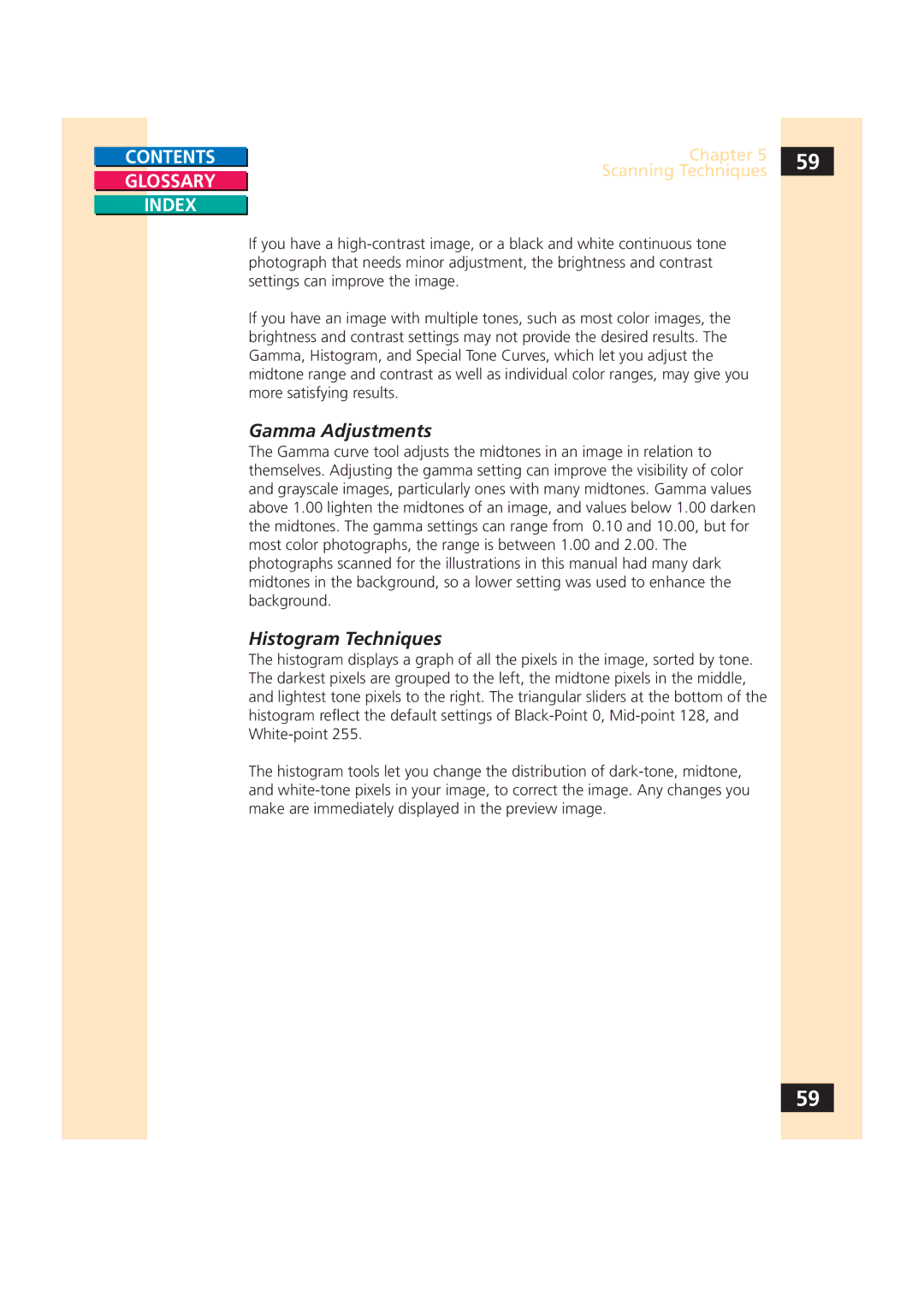
CONTENTS |
|
| Chapter 5 | 59 |
|
|
| Scanning Techniques |
|
GLOSSARY |
|
|
| |
|
|
| ||
|
|
|
| |
|
|
|
|
|
INDEX |
|
|
|
|
|
|
| ||
|
| If you have a |
| |
|
| photograph that needs minor adjustment, the brightness and contrast |
| |
|
| settings can improve the image. |
|
|
|
| If you have an image with multiple tones, such as most color images, the |
| |
|
| brightness and contrast settings may not provide the desired results. The |
| |
|
| Gamma, Histogram, and Special Tone Curves, which let you adjust the |
| |
|
| midtone range and contrast as well as individual color ranges, may give you |
| |
|
| more satisfying results. |
|
|
|
| Gamma Adjustments |
|
|
|
| The Gamma curve tool adjusts the midtones in an image in relation to |
| |
|
| themselves. Adjusting the gamma setting can improve the visibility of color |
| |
|
| and grayscale images, particularly ones with many midtones. Gamma values |
| |
|
| above 1.00 lighten the midtones of an image, and values below 1.00 darken |
| |
|
| the midtones. The gamma settings can range from | 0.10 and 10.00, but for |
|
most color photographs, the range is between 1.00 and 2.00. The photographs scanned for the illustrations in this manual had many dark midtones in the background, so a lower setting was used to enhance the background.
Histogram Techniques
The histogram displays a graph of all the pixels in the image, sorted by tone. The darkest pixels are grouped to the left, the midtone pixels in the middle, and lightest tone pixels to the right. The triangular sliders at the bottom of the histogram reflect the default settings of
The histogram tools let you change the distribution of
59
